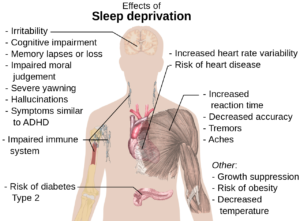 There was a time in my life when I would lay my head on a pillow at midnight and wake up six hours later refreshed and happy, without a care in the world. Then I had kids. But life is about change and I consider myself to be extremely adaptable so I have embraced my new life that often feels like deep sleep is a thing of the past.
There was a time in my life when I would lay my head on a pillow at midnight and wake up six hours later refreshed and happy, without a care in the world. Then I had kids. But life is about change and I consider myself to be extremely adaptable so I have embraced my new life that often feels like deep sleep is a thing of the past.
I love sleep like few other things. I love my bed, my sheets, my many pillows, my eye mask. Even though I don’t sleep all that much I still spend more time in my bed than any other place. Between six to seven hours of every day is spent in bed—sometimes less but never more. I have written a number of times about how sleep positions can have a profound effect on our bodies but the number of hours that we sleep and the quality of those hours is profoundly important for our health.
The range of issues that have been linked to sleep deprivation in studies covers such goodies as type two diabetes, heart disease, mental illness, obesity, work performance, seizures and the big one— mortality. And this is not a complete list.
I have two children. My daughter Ida is seven and has slept through the night as soon as she stopped nursing. Once she is asleep I could blast a symphony in her ear and she would not wake up. Given the opportunity she will happily sleep from eight pm to eight am. My son Reggie on the other hand never sleeps through the night. He is often up once or twice and is usually in our bed before the night is halfway done. I try to be up early enough to get some work done before the rest of the family rises but if I make even the slightest noise he is awake with me.
I believe that their different sleep patterns have a profound effect on their personalities. It isn’t that my son is unhappy but he definitely gets cranky far more easily and his crankiness often lasts longer. Food and sleep are the big definers in children’s moods and to me it seems clear that my sons sleep or lack thereof has a unique influence on his behavior.
Among other things, we are designed to recharge when we sleep. The down time of sleeping allows our brains to process and compartmentalize the events of the previous day. There are also chemicals in the body called neurotransmitters which facilitate the body’s communications systems. Studies have shown that lack of sleep causes imbalances in the body’s neurotransmitters which can affect our emotional being as well as our functional being.
In the context of exercise and injury, exhaustion very often leads to injury and injury very often leads to limited sleep. I can personally attest to injuries occurring because I kept working out even though I was tired and should have stopped. Anyone who has thrown out their back or suffered any acute injury will know the feeling of being woken in up in the middle of the night by a surge or spasm of pain.
One of the studies I looked at that involved more than 82,000 nurses that found an increased risk of death among those who slept less than six hours a night. We are supposed to get eight hours a night but try as I might I find it hard to sleep more than six hours at a time. I have had ample opportunities to sleep more but it never happens. But I feel that six hours is right for me and I know that when I sleep less my day will not go as well as it could.
The good news is we are able to catch up on the sleep we have lost. It means napping or getting some long nights in but it can be done and it seems to be that it would be worth the effort. The point of this post is to implore everyone to try to sleep a little bit more. I often say when teaching yoga that the things we can get away with in our twenties, thirties and forties might well catch up to us in our sixties, seventies, and eighties. It appears that the same maxim would hold true for sleeping.
***
